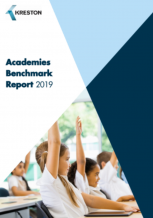With more than 200 members in our Academy team, we've got the capacity and expertise to meet your needs.
The Governance Handbook March 2019
28th March 2019
Lord Agnew writes the foreword for the latest Governance Handbook update, released 22nd March. In it, he thanks the volunteer governors for efforts and once again restates his belief that no school can perform well over a sustained period of time, without effective governance.
As a firm, we undertake various health checks in such matters of compliance and best practice, in accordance with the regulations and these provide assurance to the board of any areas to focus development.
In the first revision for over two years, the newly updated handbook once again refers and ties directly to the competency framework for governance, and embeds the six key features of governance within it – strategic leadership, accountability, people, structures, compliance and evaluation.
There are updates and changes to the content within all six areas. Although none of these are new requirements, they refer to areas where you should be already aware and are included within the handbook for the first time. Maintained school governing boards can now remove elected parent and staff governors by majority decision of the governing board. The latest requirements for careers guidance are made clear.
The new enhanced sections include:
Reducing teacher workload, stronger emphasis on parental engagement, clarification on criminal records checks and section 128 checks where it is now a requirement for academies to get a section 128 check on prospective governors, and training for clerks including reference to the clerking development programme.
The other changes are in relation to updated terminology. Edubase has been changed to Get Information About Schools (GIAS), RAISEonline has been changed to Analyse School Performance and it is explained that governors are legally entitled to access ASP (without named pupil data).
There is greater weight in relationship building between the finance governor and school business professional, to act as a link between the executive and the governing board.
It is noted that understanding the role of trustees is again bought into greater clarity. The handbook now specifically directs academy trustees to read about their duties in The Charity Commission’s guidance CC3: the essential trustee: what you need to know, what you need to do and also the Charity Commission’s welcome pack. By driving trustees towards these reference points directly, the need to understand the role of an academy trustee as also that of a charity, cannot be understated.
There are instances where the Governance Handbook comes into line with the Academies Financial Handbook (AFH) and while the frequency of board meetings, “must be regular enough to discharge their responsibilities”, if an academy board meets less than 6 times per year, it must be stated in the governance statement how effective oversight of funds has been maintained with fewer meetings.
Reference to executive pay setting and decisions also come into line with the AFH, where robust, evidence-based process is a must.
This updated handbook also makes reference to upcoming changes. A new section sets out the new guidance on sex and relationship (SRE) education and also changes to the floor and coasting standards which are in consultation at the moment.
The full updated Governance Handbook can be accessed here. If you would like further advice on matters of governance contact our team.





